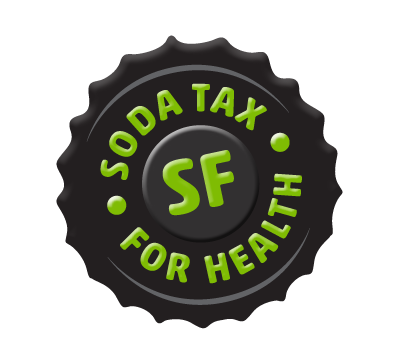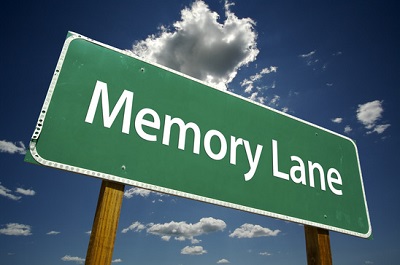Ah, summer. I miss my lazy summers as a kid… floating on a raft in the pool with not a care in the world, sipping a sugary beverage on a hot summer day.
Fast forward to the present day. School has been out for weeks, the fourth of July has come and gone, and parents are busy shuttling their kids from one summer camp to the next. Camps are different today insofar that sugary drinks are no longer as prevalent. In fact, in SF they should be close to non-existent… because we worked toward that outcome.
So much has happened to bring us to where we are today. Sugary drinks are linked to a whole host of chronic diseases like type 2 diabetes, tooth decay, and heart disease.
So just how did we get here? Please join me for a walk down memory lane as I reflect on the work of Shape Up SF and the many partners who have helped lay the foundation for the soda tax in SF through education and systems-level approaches.
It all started with a Soda Free Summer. Alameda County Public Health Department launched the first Soda Free Summer in 2007, educating residents about the health harms of sugary drinks and challenging them to go soda-free for 10 weeks and to drink healthy alternatives like water, milk or 100% fruit juice.
The campaign was so successful that in 2008, the Bay Area Nutrition and Physical Activity Collaborative (BANPAC) took the Soda Free Summer campaign regional. Six Bay Area counties (Alameda, Contra Costa, Marin, Santa Clara, San Francisco, and San Mateo) participated in the campaign thanks to funding from Kaiser Permanente Regional Community Benefit and The California Endowment who funded the evaluation. Over 100 organizations in San Francisco participated including schools, child care homes and centers, churches, and community based organizations. 20,000 commitment cards were sent to families through these organizations. Nearly half (47%) of survey respondents reported they were drinking less soda and sports drinks since being exposed to the campaign.
Soda Free Summer was becoming a household phrase. In 2009, the Board of Supervisors and the State of California declared it a Soda Free Summer! The education efforts continued, but with a new focus on families with young children and infants. SF FIRST 5 funded Shape Up SF to develop Soda Free Summer (SFS) materials for early childhood and “‘Drink Water!’ Said the Otter” (DWSTO) was born. Over 5,000 DWSTO books were distributed to every pre-k and kindergarten class in the SFUSD and hundreds more to SF Children’s Council, Kaiser Permanente, and other partners.
In 2010, the “Rethink Your Drink” movement gained speed. The awareness efforts continued: SF ran NYC’s Pouring on the Pounds campaign on MUNI. The beloved Otter of “Drink Water!” fame was translated into Spanish and distributed to hundreds of providers across the city.
But there were exciting systems-level changes happening too. Mayor Newsom issued an executive directive establishing healthy vending guidelines for vending machines on City property; and that summer, SF’s Recreation and Parks Department included a “no soda” policy in the Summer Camp manual that applied to campers and counselors.
The awareness and education coupled with policy changes were beginning to have a big impact. In 2012, Kaiser Permanente funded Shape Up SF to support three organizations to adopt healthy beverage policies. Over 63,000 people were impacted by the healthy food and beverage policies at the YMCA, Bayview Hunters Point Foundation and SF Children’s Council!
In 2013, Shape Up SF partnered with UCSF’s Center for Vulnerable Populations and Youth Speaks to focus on the negative impacts of sugary drinks on health and how Big Soda targets young people and communities of color. Watch the powerful videos at TheBiggerPicture.org.
In 2014, there was a big push on awareness and education as key partners prepared for a soda tax on the November ballot. Shape Up SF launched the “Choose Healthy Drinks” campaign with other Bay Area counties to increase awareness about the amount of sugar in drinks. These ads saturated the community at corner stores, billboards, and on public transit. SUSF developed a training of trainers that focused on how sugary drinks are making us sick and Big Soda’s tactics. Although the tax did not pass in SF, Berkeley became the first city in the US to pass a voter approved soda tax despite Big Soda spending over $10 million in the Bay Area to defeat these efforts.
2015 started with the launch of our Open Truth Campaign, which opened doors and paved the way for new partnerships and exciting victories against Big Soda:
- San Francisco State University students, led by the Real Food Challenge, kept Big Soda from entering into a pouring rights contract and having a beverage monopoly and significant marketing presence on campus.
- SFDPH continued to “walk the talk” by issuing a directive that sugary drinks are not allowed for any event led by DPH or on DPH property; or to be paid for with DPH funding. Zuckerberg SF General Hospital also adopted a groundbreaking sugar-sweetened beverage-free policy in the fall.
- SF Supervisors introduced three landmark policies to reduce sugary drinks impacts on SF: Mandating warning labels on SSB ads in SF; Prohibiting SSB ads on public property; and Prohibiting use of City funds to purchase SSB.
2016 proved to be a standout year for the movement to decrease consumption of sugary drinks.
- Philadelphia, Boulder, and Cook County all passed soda taxes!
- Shape Up SF led the transcreation of Open Truth Campaign into Spanish: Destapa la Verdad; and partnered with SFHIP to support health equity coalition members educate the Chinese, Black, and Latino communities about sugary drinks through grassroots education and advocacy.
- Decreasing consumption of sugary drinks is important, but we also needed to promote the consumption of healthy drinks like tap water. Shape Up SF partnered with SFHIP, the City and County of SF, and SF Public Utilities Commission to ensure equitable access to public sources of clean drinking water they can trust, resulting in the installation of hydration stations in schools and public spaces across the City.
On January 1, 2018, the voter-approved “soda tax” went into effect, collecting millions of dollars to fund health education, access to healthy food, opportunities for physical activity, awareness campaigns, oral health, access to water, and so much more.
As you have read, a lot of hard work and collaboration led to the passage of the SF soda tax. To everyone who has helped pave the way and to all organizations who are passing the policies, providing the services and programs to create healthy environments for our communities… thank you!!


